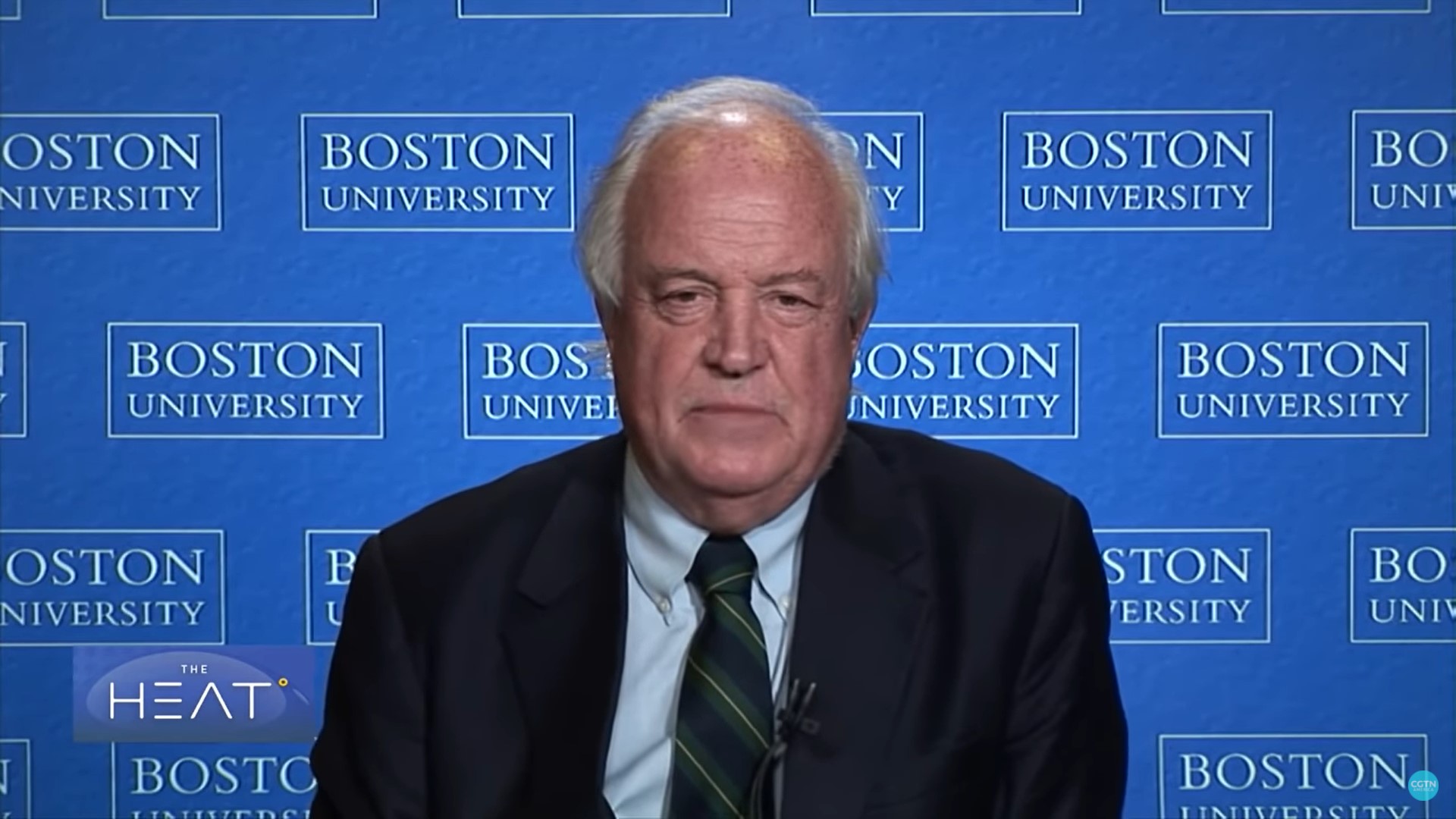Deglobalization and China-Latin America Relations: Heine on The Heat.

Ambassador Jorge Heine, Research Professor at Boston University’s Frederick S. Pardee School of Global Studies and Interim Director of the Frederick S. Pardee Center for the Study of the Longer-Range Future, recently appeared on CGTN: America’s The Heat to discuss how China’s evolving foreign policy strategy will shape international affairs.
Heine first discussed interconnectivity in global affairs, believing that globalization took the global economy into a positive direction, but that this success may be in jeopardy as leaders in the United States call for ‘economic decoupling’ from China. Heine believes that fragmenting economic relations between the two countries would be a major mistake and limit both countries’ economic success. On the other end of the spectrum, he touched on positive examples of increasing globalization between South American countries and China. Citing trade surpluses for both Brazil and Chile, Heine argues that China’s presence in the region has been key for growing trade, investment and progress.
The news segment can be accessed in full here.
Ambassador Jorge Heine is a Research Professor at the Pardee School of Global Studies at Boston University. He has served as ambassador of Chile to China (2014-2017), to India (2003-2007), and to South Africa (1994-1999), and as a Cabinet Minister in the Chilean Government. Read more about Ambassador Heine on his Pardee School faculty profile.